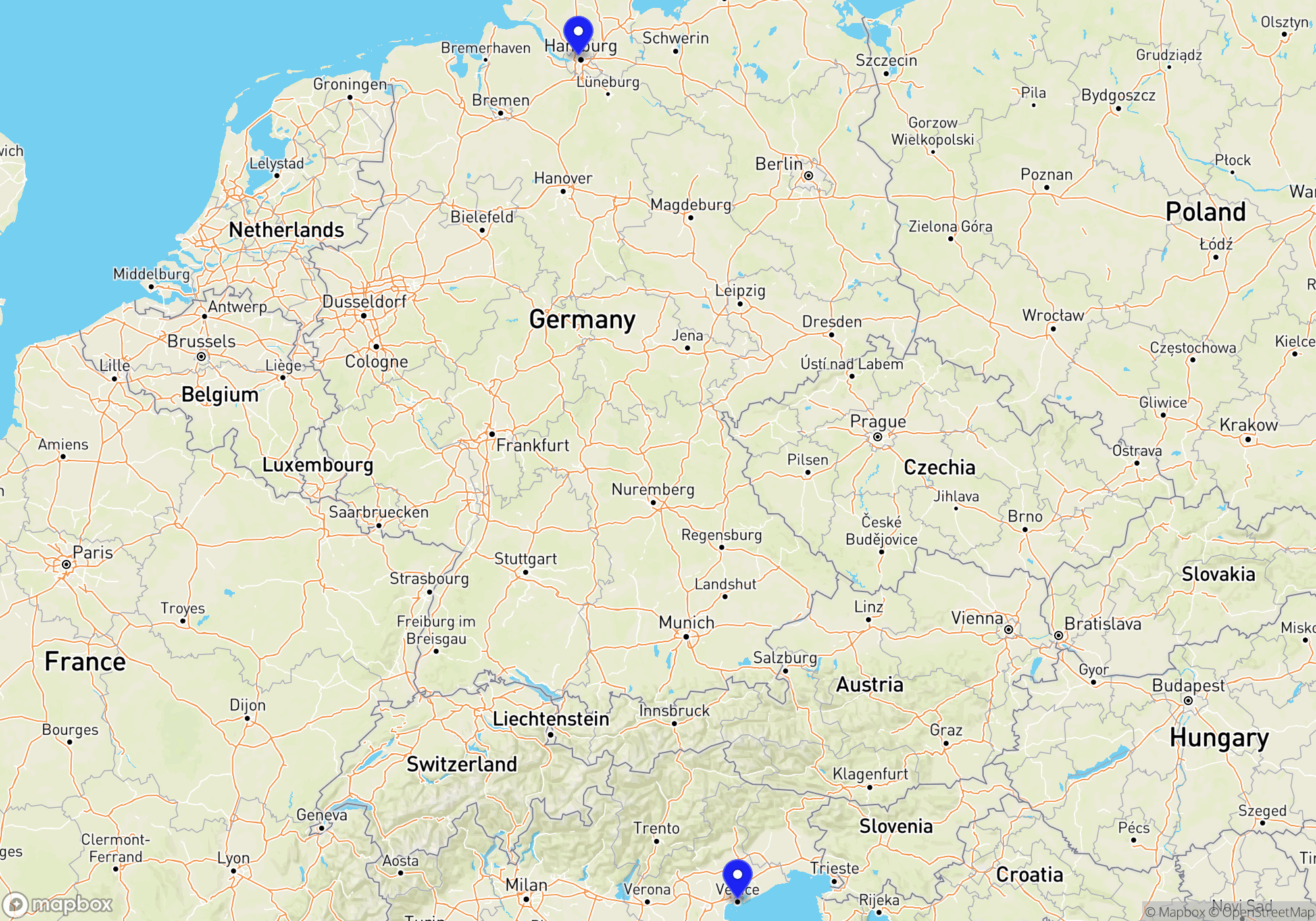
You can buy train tickets directly from the operator or through a reseller. The reseller is typically slightly more expensive (3-5%) but can provide an easier booking experience, especially if you travel with more than one operator.


These operators provide a complete journey either as a direct connection or through their partners. Even if a change of trains is involved, it’s all part of a single itinerary managed by the same train company or its partners, offering a smoother and more coordinated travel experience.
Some operators don’t run direct trains the whole way, but they serve either the departure or arrival station. In many cases, you can combine two of these operators to complete your journey by changing trains along the way. This is often a flexible and budget-friendly way to travel — especially if you’re comfortable piecing together your own itinerary.
Just keep in mind that these are separate journeys, which means a delay on the first leg could cause you to miss the second without automatic compensation or rebooking. It’s a great option for confident travelers who don’t mind a bit of extra planning.
Deutsche Bahn is Germany’s national railway company, known for its extensive network and efficient services across Europe. The train types operated by Deutsche Bahn include Intercity-Express (ICE), Intercity (IC), EuroCity (EC), and Regional services, each tailored for different travel needs. The ICE trains are the fastest and most advanced, offering high-speed travel with modern amenities. Passengers can enjoy comfortable seating, onboard dining options, free Wi-Fi, and power outlets. The trains also provide quiet zones, family compartments, and mobile service reception enhancement. Deutsche Bahn’s customer support is robust, with multilingual staff available at major stations, a user-friendly website, and an app offering real-time travel updates, bookings, and customer service interactions.
Flixbus operates as a long-distance bus company that recently expanded into train services under the FlixTrain brand, primarily serving routes within Germany and a few international connections. Their trains focus on affordability and sustainability with a bright green branding. The onboard experience is geared towards budget travelers, offering free Wi-Fi, power outlets at seats, and an onboard snack and beverage service that is more limited compared to Deutsche Bahn’s offerings. FlixTrain emphasizes digital service, with options to book tickets via their website or app, and they provide support mainly through digital channels, lacking the extensive station-based service that Deutsche Bahn offers. FlixTrain caters especially to cost-conscious travelers who value basic comfort and easy online access to travel information.
For train travel from Hamburg to Venice, both the Interrail Global Pass and the Eurail Pass are valid options. The Interrail Global Pass is available for European residents and allows travel across multiple countries, including Germany and Italy. However, it is not valid for trips within the resident’s own country, so a German resident cannot use it for the portion of the journey within Germany. The Interrail One Country Pass is not applicable for this itinerary as it is specific to travel within a single country, and this trip involves crossing several countries. The Eurail Pass is suitable for non-EU residents and allows travel on train routes across Europe including from Germany to Italy.
Venice is unique in that it primarily relies on water-based transportation due to its network of canals. Upon arriving by train at Venezia Santa Lucia station, you can easily access the Vaporetto, or water bus, which is the main mode of public transportation in Venice. The Vaporetto operates various lines throughout the city and to nearby islands, making it a convenient option for getting around. Tickets can be purchased at kiosks or online. In addition to Vaporettos, traditional gondolas and water taxis are available, though they tend to be more expensive. Venice does not have a tram or metro system, and while there are no ride-sharing apps operating regular rides within the city, some water taxis offer app-based bookings. For traveling on foot, which is often the best way to explore the narrow streets and hidden alleyways, maps or GPS services can help navigate Venice’s intricate layout.
Venice is a well-connected hub for train travel, offering convenient domestic and international rail connections. Domestically, one of the most popular routes is from Venice to Milan, which is served by high-speed trains like Trenitalia’s Frecciarossa and Italo. These trains provide a fast and comfortable journey, taking about 2.5 to 3 hours. Another significant domestic connection is to Florence, a route covered by high-speed trains in approximately 2 hours. Traveling from Venice to Rome is also popular, with high-speed trains making the journey in about 3.5 to 4 hours.
Internationally, Venice offers several key rail connections. The train to Vienna, operated by ÖBB, provides a scenic journey through the Alps and takes about 7.5 to 8 hours. For travelers heading to Munich, Deutsche Bahn offers train services that take roughly 7 to 8 hours, often with a transfer in Verona. Additionally, there is a connection from Venice to Zurich, with Swiss Federal Railways providing direct trains that complete the journey in around 7 hours. These rail connections make Venice an ideal starting point for exploring both Italy and neighboring countries.
The best times to visit Venice by train are during the shoulder seasons of late spring (April to early June) and early autumn (September to October). During these months, the weather is generally pleasant, offering mild temperatures and fewer tourists compared to the summer peak, which makes exploring the city’s charming streets and canals more enjoyable. Train travel tends to be more relaxed and accessible during these periods, as the stations are less crowded. Accommodation prices are generally lower than in the peak summer months of July and August, when tourism is at its highest. Additionally, visiting in spring can align with events such as the Festa della Sensa, which celebrates Venice’s historical relationship with the sea. In autumn, you might enjoy the Regata Storica, a historic rowing event featuring costumed participants. Avoiding winter, particularly November to March, is advisable if you’re not a fan of cold, damp weather and the possibility of acqua alta (high water) flooding, although this period could offer lower prices and a more authentic Venetian experience due to fewer tourists.
When traveling from Hamburg to Venice by train, it is essential to pack your passport or national ID card if you are an EU citizen, as Italy is part of the Schengen Area. Bring your train tickets or a digital version on your smartphone. Pack a comfortable travel pillow and a lightweight blanket for a more pleasant journey. Noise-canceling headphones or earplugs can be helpful for blocking out noise. Bring a refillable water bottle, snacks, and perhaps a packed meal to avoid relying solely on onboard catering. A universal power adapter is necessary as Italy uses a different plug type (Type L) compared to Germany. Consider bringing a portable power bank to charge your devices when outlets are scarce. Be sure to pack any medications you need, along with a small first-aid kit. A travel guide or a map of Venice can be beneficial upon arrival. A rain jacket or compact umbrella is advisable given the potential for rain. For exploring Venice, comfortable walking shoes are crucial due to cobblestone streets and bridges. A small backpack or day bag will be valuable for carrying essentials while sightseeing. Bring sunscreen and sunglasses for protection against the sun, especially given Venice’s reflective waterways. Have some local currency (Euros) on hand for small purchases. Finally, a lightweight quick-dry towel can be helpful if you plan to be adventurous near the water in Venice.
Some content on this website is created with the assistance of generative AI. To ensure factual accuracy, all information is reviewed by an expert in European train travel. However, despite careful verification, occasional errors or updates may not be immediately reflected. © 2025 Green Company. All rights reserved.